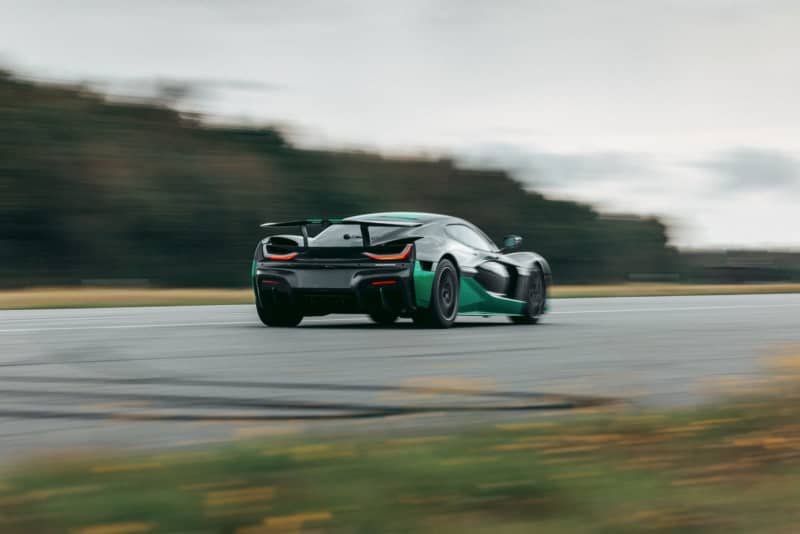The Italian-Japanese hypercar shook the world of electric cars by reaching a record speed of 438.73 km/h on a track in Germany. The wild-looking Aspark Owl SP600’s thrilling race took place on the 1.8km straight at the North German race track in Papenburg.
The Owl dethroned Croatia’s Rimac Nevera (412 km/h) as the world’s fastest electric speed machine. That car had previously set the benchmark at the same place in March this year.
Most talk about electric cars centers on maximizing range and battery efficiency, but engineers around the world have been working for years to make vehicles reach breakneck speeds.
Electric vehicles designed for daily use with speed limiters that help conserve battery and brake energy, preventing rapid drain and wear at high speeds. The weight of the batteries is also a limiting factor.
Some electric hypercars now put gasoline-powered performance cars to shame, and almost all boast jet fighter-style acceleration, like the Owl, which needs just 1.98 seconds to sprint from 0 to 60 mph.
The third fastest tram is the Pininfarina Battista, which reached 358 km/h and uses Rimac technology. Fourth place goes to the North American brand Lucid for its Sapphire (330 km/h).
Tesla more or less invented the electric performance car, and its family sedan, the Model S Plaid, can exceed 200 mph to secure fifth place, as long as traffic rules allow it. Germany is practically the only country in the world where such speeds are permitted on certain public roads.
This Maserati Granturismo Folgore (the last word in the name means lightning in Italian), with a speed of 320 km/h, occupies sixth place and is also the most powerful car in the manufacturer’s range. Not far behind is the Porsche Taycan, which has a very respectable top speed of 305 km/h for seventh place.
Not quite in the same league is the Lotus Electre R (260 km/h) in eighth place, while the Emrya R from the same stable remains strong at 258 km/h as the ninth fastest electric vehicle in the world.
Tenth place goes to the Audi e-tron GT, which takes a lot of inspiration from Porsche to create a svelte and luxurious long-distance cruiser. In top-of-the-range RS guise, it gives all other hyperelectrics a good run for their money, but the top speed is set at 250 km/h from the factory.




































